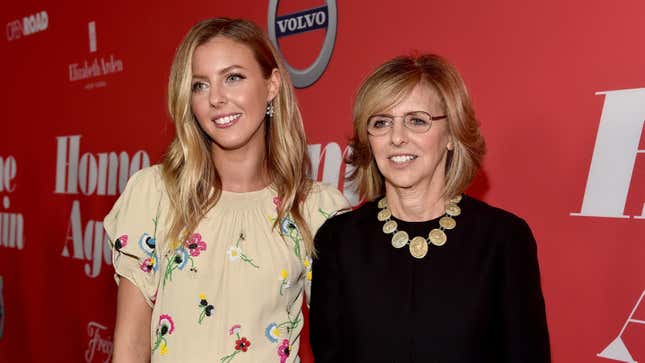Do Celebrities Know What Sexism Is?
Latest

This week, New York Magazine’s pop culture vertical, Vulture, kicked off a series intended to celebrate the films of Nancy Meyers with a “Chaotic Taxonomy” of the running themes and motifs of Meyers films—roast chicken, feel-good love stories, gorgeous kitchens, etc.—that also served as a lighthearted love letter to the films themselves. Noting the themes of Meyers’s movies in a largely celebratory piece, however, was the impetus for Meyers’s daughter Hallie Meyers-Shyer, director of the film Home Again and included in the taxonomy, to label the discussion of her mother’s work “sexist” and “inappropriate,” though it was neither.
As Hollywood has faced a reckoning with its actual history of collective racism, sexism, violence, and exploitation, some celebrities have also used this reckoning as a PR tool to attempt to label any press they personally do not like as sexism. Vulture writer Rachel Handler painstakingly parsed each of Meyers’s movies for the themes that pop up continually in her work, using a wine glass rating system to award points for Meyers tropes like white wine, in a fun attempt to organize the “very specific cinematic world and language” Meyers has created through her films. The world is one Handler repeatedly explains she loves very much, her reason for undertaking this task in the first place. Meyers-Shyer, however, dislikes this praise as it focuses on the emotions, homes, and mentions of therapy in her mother’s films instead of praising movies like Private Benjamin, a movie in which joining the army teaches a woman she does not have to sign a prenup or marry a philandering French communist, as “feminist triumphs.”
“To reduce her movies to a ‘wine glass score’ is a much bigger issue than a dumb drinking game,” Meyers-Shyer wrote in a Notes App screenshot response. “It evokes an unfriendly and all too familiar feeling I thought we were past as a society.” But the “feeling” to which Meyers-Shyer seems to be referring is not feminism, it is her personal perception of being slighted by Handler who says that while Home Again was “technically” the work of Meyers’s daughter, the film smacks of the tropes and themes found in the catalog of her mother, a point that has been noted by numerous critics since the film’s release. What Meyers-Shyer is legitimizing is her personal response to professional criticism written by a woman by labeling it anti-feminist, a strategy that rings hollow when a celebrity is focused on their tarnished brand rather than the actual systemic injustices women collectively face.
“There’s a special place in hell for women who don’t help each other,” is a phrase that gets bandied about when women criticize other women. Most notably, Taylor Swift used it in response to a silly, one-sentence joke Tina Fey made about her at an awards show. But the originator of the quote herself, Madeline Albright, has clarified that she intended the place in hell for the women who benefit from the gains made by other women while also working to uphold the systemic injustices that hold other women back in an op-ed apologizing for misusing her own phrase:
-

-

-

-

-

-

-

-

-

-

-

-

-

-

-

-

-

-

-

-

-

-

-

-

-

-

-

-

-

-

-

-

-

-

-

-

-

-

-

-








































